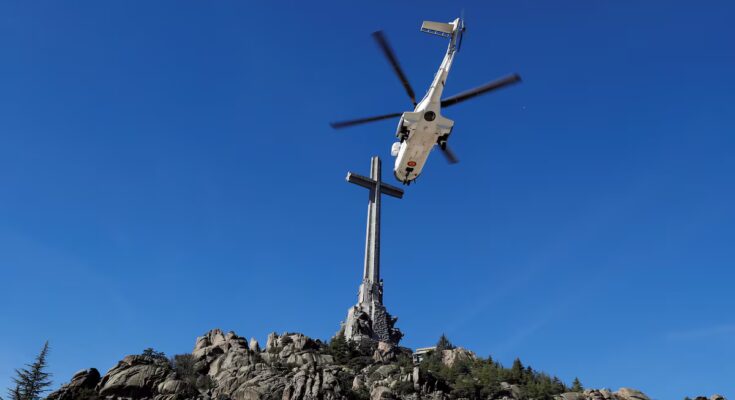I remember the day of Franco’s death. I see it in gray. Maybe because the memory takes me to Santander, the rainy city where I was born. For the second time in my short life my father drove me to school. The first was the day of the Carrero Blanco attack. In both the trip was a round trip after checking that there were no lessons. On November 20, 1975, the old man with the throaty voice that my parents listened to with respect on television died. Then I understood that there was the discreet shadow of fear in it.
They had learned it at home. In the sentimental education of republican families condemned by the dictatorship to live an exile of memory which meant that neither the Civil War nor politics were talked about. They had been mistreated by the victors, but they had survived. However, my maternal grandmother would occasionally proudly whisper that we were “from the bitter shell.”
That fear continued to operate after Franco’s death. It was a tension that I later associated with my parents’ suspicion of some neighbors. One of them, right on the stairs, was wearing the khaki uniform of an army commander. Another, in the building opposite, was the father of a friend of mine and wore the gray uniform of a captain of the Armed Police. And a third, retired and whom my father could not see due to the courage his bullfighting activity gave him, lived on the side door of the house and still showed the arrogant rictus of someone who had been head of the Civil Guard Command in the leaden years of the Mediterranean scrub.
My childhood developed in this bourgeois environment that emerged from the Franco regime. It was during that transition that I always remember in black and white. A period of self-repression that normalized fear and replaced it with a form of reverential respect for order. I understood this forty years after Franco’s death: on October 24, 2019. It happened while I was watching Franco’s exhumation and I was moved by the images. Not through his fault, but because they made me revisit that silence of my grandparents which, suddenly, I understood in their profound serenity.
Something similar had happened to me when I was sworn in as a deputy to the Cortes in the spring of 2004. Then I remembered my grandfather Juan. An azañista who led his family to disaster for not having retracted his ideas or for not having asked his Francoist friends for help so as not to die of hunger. I promised my proud position of belonging to an honorable lineage of the republican resistance, but with that exhumation I went further. Not only because tears fell at the image of that coffin wobbling on television, but because I felt that the memory of my family was truly rewarded.
I experienced the moment under the light of an autumn sun that illuminated the living room at home. I felt at peace because many pieces of the confusing mosaic of childhood had been put together. 15,988 days after 20-N, history took away from Franco the monumental rest he had had until then as head of state. In exchange he and his wife received a pious Christian burial. A magnanimous gesture that allowed the dictator’s relatives to transport his remains accompanied, obviously, by the judging silence of history. A political decision that once again demonstrated the moral superiority of democracy over dictatorship. The executioner was given what he denied to the victims of his repression. A live lesson in historical memory. An act of democratic piety that reconciled us in a simple and serene way with the past. For me, the first.
José María Lasalle He was Secretary of State for Culture and the Digital Agenda from 2016 to 2018, in the governments of Mariano Rajoy. His latest book is artificial civilization (Harp).



